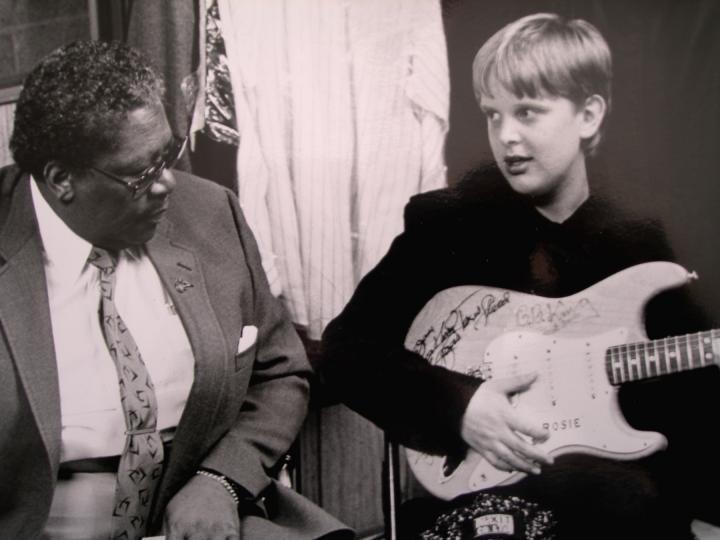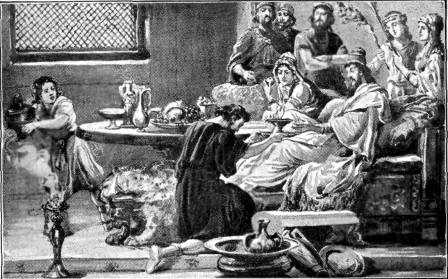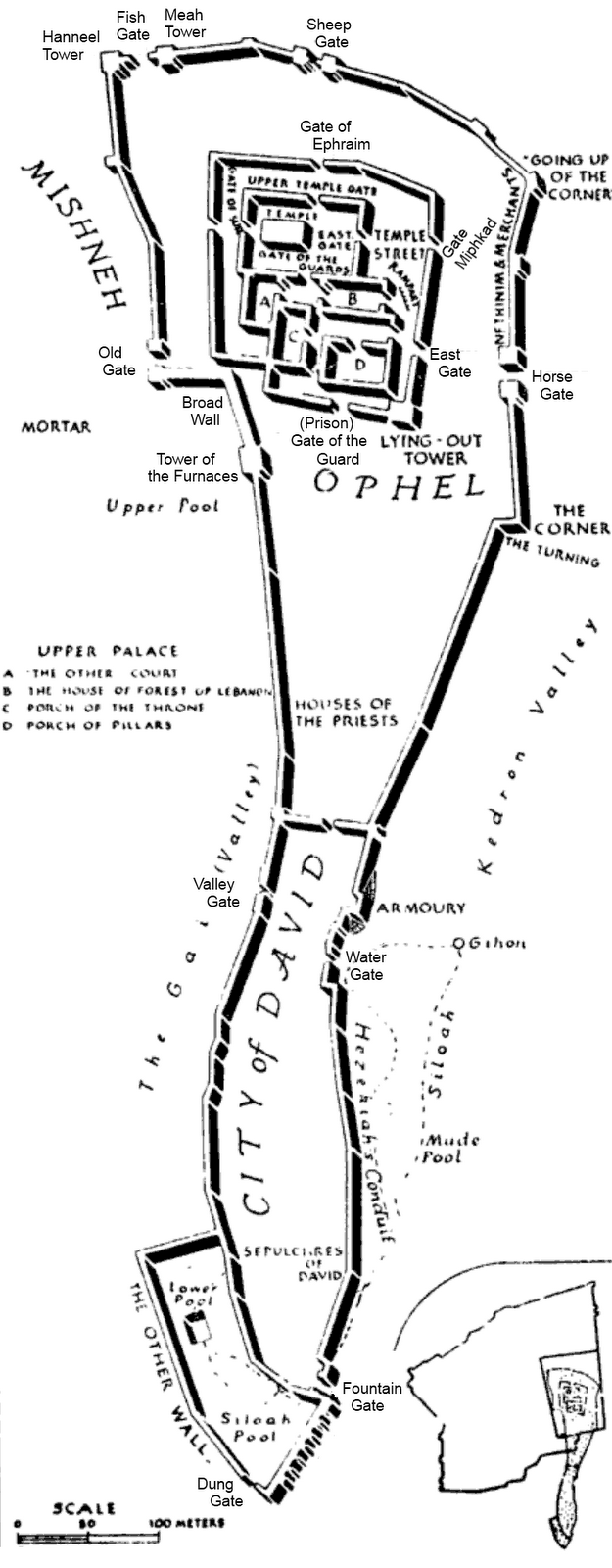
Anyone who loves the blues knows of guitar blues icon Joe Bonamassa. At age 11, he burst on the music scene playing backup to another blues legend, BB King, who seeing the spindly youth play his heart out on a Fender Strat, was so impressed he toured with BB in 1989. Quoted King:
“This kid’s potential is unbelievable. He hasn’t even begun to scratch the surface. He’s one of a kind.”

When asked his secret to success, Joe answered, “It was about 10% talent, and 90% hard work. You can’t succeed in this business without it. There’s no substitute for hard work.” Without a doubt Joe’s hard work has revived what was once considered a musical genre that had seen its apex.
But what the world didn’t see, was years and years of disciplined training, coaching, and encouraging by his father, a dealer of musical instruments. So immersed in blues was Joe, that success became the obvious result of preparation meeting opportunity. Certainly his work ethic is not in isolation.
Even a cursory reading of chapter one and two gives us insight into the previous life of the son of Hacaliah. What can we discern of the man? First off, we see deep patriotism. (Neh 1:2-4) Patriotism is not a natural sentiment, it is a deeply penetrating liniment applied to the soul; dressed, and repeated from the locker of family values.
Also from this heritage is his natural, deep, and rich prayer life. (Neh 1:5-10). So much so even to the present day, Nehemiah’s prayers are held up both both Christians and Jews for their passion, structure, and effectiveness. Again, this was not learned in isolation, but from parents who treasured God and His Word. Even the pattern imitates the “Lord’s Prayer” of Matthew 6 in its simple, logical fashion, honoring the person of the Father, acceptance of His will in our lives, and so on.
More? That Nehemiah had risen to the high position of cupbearer to the king was surely no accident of circumstance. The core purpose was to help ensure no poison touched the king’s lips by ambitious provocateurs. A deep level of trust was implicit between cupbearer and regent; most often that trust widened to one of trusted advisor. Only a man shown to be trustworthy under prolonged scrutiny could ever hope to be chosen for this important position.

Then what shall we say of the hand of God in Nehemiah’s life? The Holy Spirit has sovereignly elected him the distinction of authoring a book of the Bible, not a privilege available to most, but God’s decision alone. And there were doubtless many who possessed Nehemiah’s Godly heritage, self discipline, and drive. But only one was chosen by the king, or should we say, chosen by the King:
“The king’s heart is like channels of water in the hand of the Lord; He turns it wherever He wishes.” – Proverbs 21:1
We might not be tasting in the king’s service, but we are sons and heirs in the King’s court. Let’s sup with Him.
Summary / Thoughts
Nehemiah’s Prayer is Answered
| Nehemiah 2:1-2 | Four months have passed since Nehemiah’s prayer. Do our prayers seem unanswered? Why so sad? After all, four months have passed, life moves on, right? No. The angst he felt for his country and countrymen persisted. The cupbearer would approach the king with the cup, a long fringed and embroidered napkin for the king to wipe himself. The cupbearer poured the wine fem the cup in his right hand into his left palm, and drank it in the king’s presence. Pharaoh and Solomon also used cupbearers. Being a prominent courtier, the order of the courtiers was to be merriment at all times. Compare the encounter with Hadassah’s (Esther) Esther 4:4-5:4. Esther braces and tried to hide her concern over Haman with her beauty and adornment, but despite this, Artexerxes (via God, of course) showed favor anyway. |
| Nehemiah 2:3-5 | Having this angst bottled up for so long, is now confronted by the king to bring his problem to the forefront. Sometimes God protects us from our natural tendency to deny real emotion and passion when He desires the healthy best choice of confronting issues, as Christ did. Most importantly, he prayed for an answer. First was the drawn out formal prayer of chapter one, now a simple “God, what do I say?!Can you think of times when Christ could have avoided confrontation but instead met it straight on? |
| Nehemiah 2:6-8 | Once emboldened by the positive response, he now asks boldly for what he needs. Do you think he prepared this list in advance? Do you ask boldly of God? |
| Nehemiah 2:9-10 | Sanballat, a man of compromise. He was a Samaritan. Good information on him is here: http://www.antiquities.org.il/article_Item_eng.asp?sec_id=36&subj_id=286His life was a compromise. He was connected to the building of the Samaritan Temple at Mt. Gerazim, and had great political interest in seeing the Jerusalem Temple be not built. He is mentioned in an ancient text, the Elephantine papyrus. The Elephanitnes were a Jewish colony in Upper Egypt who wrote, among other things, for material support. The crux of the controversy includes which Temple should the Jews worship at? Even as late as the time of Christ, the woman at the well of John 4:19-20 asks the question, or rather attempts to deflect Jesus’ point of her need for salvation. However at this time, the Temple God manifested Himself in was at Jerusalem, dedicated and paid for by David, and built and consecrated by Solomon (2 Chr 6 & 7) |

Arrival in Jerusalem and Inspection of the Walls
| Nehemiah 2:11-16 | Guided by the Holy Spirit, he proceeds with his mission. There is a time for consensus, planning and vision casting (Pro 11:14, 12:15, 15:22 and elsewhere), and there times when it is best to act in discretion (Pro 12:23), so as not to allow enemies an advantage, and allies misunderstanding. Nehemiah is merely gathering intelligence that he will act on later. |
| Nehemiah 2:17-20 | Nehemiah’s discretion pays dividends in the appeal to the people and the rebuke of his enemies. More on them next week!All in all, Nehemiah remains fully reliant on God. |
Memory Verse – When I heard these words, I sat down and wept and mourned for days; and I was fasting and praying before the God of heaven. Nehemiah 1:4
Application – I will pray with passion and purpose and without compromise.